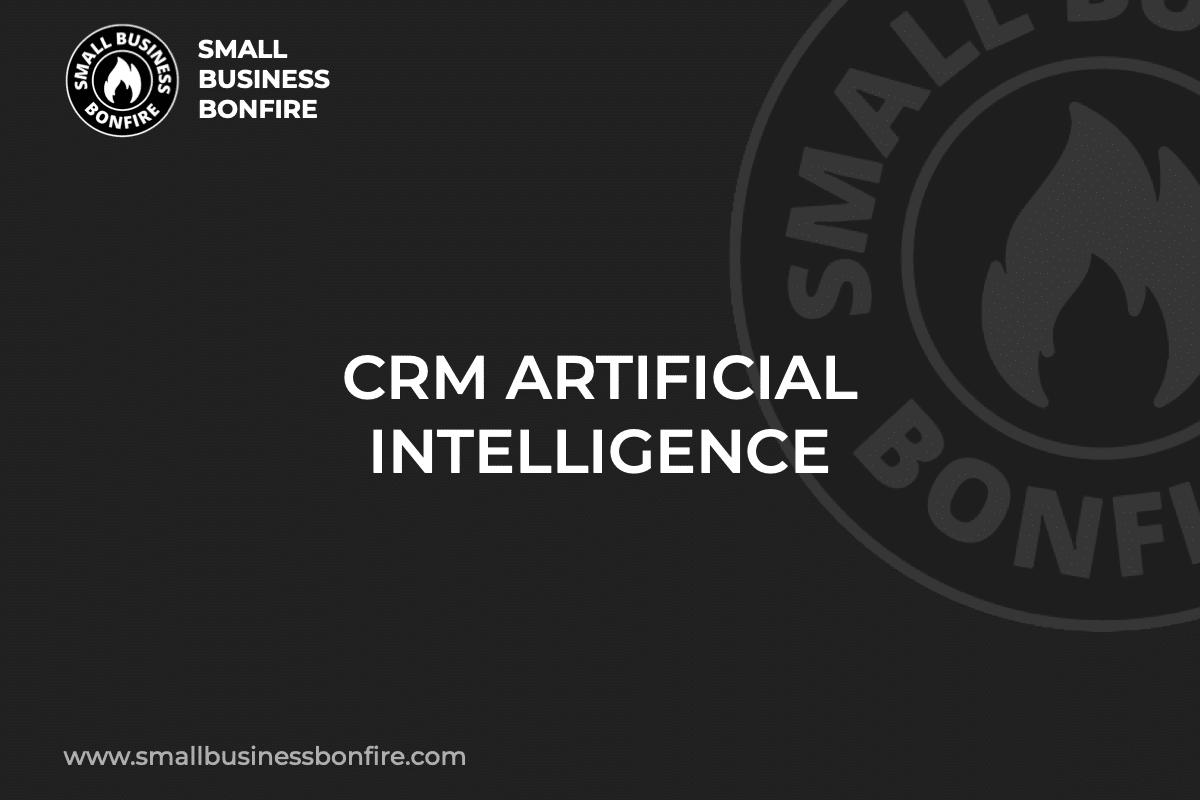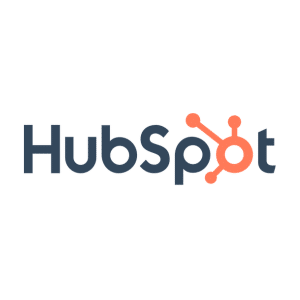Is your company struggling with any of the following things: inaccurate data, poor sales forecasting, or keeping up with customer trends?
If so, you’re in the right place. You may have previously considered a CRM system with AI but don’t understand how it works.
Hi, my name is AJ! After selling my company for multiple seven figures, I shifted gears and started Small Business Bonfire to help entrepreneurs like YOU!
CRM artificial intelligence was a game-changer for me, and in this guide, I’ll explain what it is and how it can benefit your business.
Keep reading to learn more about CRM artificial intelligence and how it can help you stay ahead of the curve!
Key Takeaways
- AI in CRM software helps teams work more efficiently and access reliable information.
- Artificial intelligence can benefit marketing, sales, customer service, and IT departments.
- CRM systems with AI automatically identify trends on social media so teams can adjust messaging.
Related Reading: Best CRM for Small Businesses
SBB Featured Partners
What is CRM AI (Artificial Intelligence)?
CRM AI, or customer relationship management artificial intelligence, is like having a super-smart assistant that helps businesses understand their customers better.
For instance, imagine you’re running a lemonade stand; CRM AI is like a friend who remembers the following things:
- Every customer
- What each customer likes
- When certain customers usually stop by
- Predictions about who might want extra lemons next time
This way, you can focus on making the best lemonade while your AI assistant ensures each customer gets a tailor-made experience.
And that’s what businesses do with AI-powered CRM systems; they deliver personalized services to their customers, predict future trends, and make better decisions!
What are the Benefits of AI in CRM?
Using AI with CRM systems comes with several benefits.
Below, I’ve listed the most sought-after advantages businesses look for when choosing an AI-based CRM.
Improved Decision Making
AI-powered CRM systems offer data-driven insights that help businesses make informed decisions.
A CRM platform does by doing the following things:
- Analyzing customer data
- Predicting trends
- Providing actionable advice
As a result, marketing and sales teams enhance strategic decision-making and drive improved business outcomes.
Better Sales Performance
AI in CRM software can dramatically improve sales performance by using predictive analytics.
Therefore, businesses can accurately forecast sales trends, allowing sales teams to better target potential customers and close deals more efficiently.
Also, AI can automate routine tasks, freeing up sales personnel to focus on customer interactions and strategic aspects of sales, ultimately leading to increased conversions and revenue!
Faster Operations
Combining artificial intelligence with a CRM platform streamlines business processes by automating routine tasks, such as:
- Data entry
- Scheduling
- Customer follow-ups
- Handling customer inquiries
- Data cleansing
Automated insights save valuable time and resources!
Also, through AI functionality, teams can swiftly analyze large volumes of customer data and provide quick, actionable insights.
When teams automate tasks, it enables them to rapidly respond to customer needs and market changes.
Better Customer Engagement
Artificial intelligence in a CRM system enhances customer engagement by personalizing the shopping experience.
An AI-powered CRM platform uses past customer behavior and predictive analytics to build meaningful customer relationships.
Customer data analysis allows companies to do the following things:
- Tailor their services
- Provide timely responses
- Anticipate customer needs
- Foster a more interactive and satisfying customer experience
Easier Development
Leveraging an AI-based CRM system simplifies development processes by automating routine tasks and reducing the scope for human error.
For instance, with AI, developers can easily integrate advanced features like predictive modeling and machine learning into CRM platforms.
As a result, this saves development time and optimizes product performance!
Improved Data Reliability
AI-powered CRM platforms boost data reliability by offering advanced features like:
- Data cleansing
- Duplicate detection
- Anomaly detection
When machines analyze and input CRM data, it significantly reduces data errors.
Also, these platforms can automate data validation processes and ensure consistency in data, leading to accurate, timely, and reliable data that businesses can trust for decision-making.
Safer Data Management
AI-powered CRM systems enhance customer data safety by employing advanced data encryption and automated backup features.
As a result, you can protect sensitive customer information from potential breaches.
Further, AI technologies can help monitor and detect abnormal activities, providing an additional layer of security and ensuring safer data management!
CRM AI Key Features
What can AI tools do within CRM software? The answer might surprise you!
AI can do several things, so let’s see the key features within a CRM platform.
Accurate Sales Forecasts
A CRM solution with AI utilizes advanced predictive analytics and machine learning algorithms to accurately predict sales trends.
Further, these systems analyze past sales data, identify patterns, and make reliable predictions about future sales.
As a result, businesses can strategize effectively and maximize their revenue potential.
AI Recommendations
AI recommendations within CRM platforms provide valuable insights by doing the following things:
- Analyzing vast amounts of data
- Spotting patterns in data analytics
- Suggesting actions that can enhance and streamline business processes
These data-driven suggestions can help companies tailor their marketing strategies, improve customer interactions, and boost sales and customer satisfaction.
Natural Language Search
Natural language search in AI-powered systems allows businesses to streamline the process of sifting through massive amounts of data.
How do these systems do that? By using everyday, conversational language.
Natural language processing is a feature that revolutionizes data interaction by making it more user-friendly and efficient, saving time and enhancing various business aspects.
Predictive Lead Scoring
Predictive lead scoring in an AI-powered CRM platform utilizes sophisticated machine learning algorithms to analyze various factors and rank prospective leads based on their tendency to convert.
This data-driven approach enhances lead scoring accuracy and enables sales reps to prioritize their efforts strategically.
Businesses can optimize the sales process and boost conversion rates using predictive lead scoring methods!
Auto-Generated Follow-Ups
Auto-generated follow-ups ensure no potential lead or customer query slips through the cracks, systematically nurturing relationships and opportunities.
These automated reminders save valuable time for sales reps and enhance customer engagement by providing timely and consistent communication.
As a result, CRM users can drive customer satisfaction and loyalty.
Data Entry Automation
Data entry automation in CRM software eliminates manual data entry.
Automated data entry significantly reduces time spent on menial tasks and the potential for human error.
This AI functionality enhances operational efficiency and ensures teams have accurate, timely, and reliable data.
AI in CRM Use Cases
Let’s see how AI capabilities can assist the following departments:
- Sales
- Marketing
- Customer service
- IT
CRM AI Sales Use Cases
Here are ways AI and CRM software can help sales professionals:
- Forecast customer lifetime value based on sales activity and demographic data to increase conversion rates
- Automate routine tasks that slow a sales team down (scheduling appointments, sending emails, etc.)
- Analyze sales pipelines and recommend solutions for weak points
- Analyze each salesperson and show sales leaders ways they can improve performance
CRM AI Marketing Use Cases
How can AI and CRM software help your marketing department? Check out these three solutions:
- Use sentiment analysis to discover which communication channels improve customer experiences
- Customer segmentation based on psychographic, demographic, or geographic data to predict behaviors
- Personalize customer experiences through social media ads and content
CRM AI Customer Service Use Cases
Here are a few ways an AI-driven CRM can assist your customer service team:
- Offer personalized support and recommendations to boost customer loyalty and engagement
- Deliver 24/7, multi-channel assistance via chatbots to reduce customer churn
- Contact customers proactively to prevent dissatisfaction and poor reviews
CRM AI IT Use Cases
Lastly, AI and CRM software can help IT departments by doing the following things:
- Protect digital assets and customer information through fraud detection
- Leverage development frameworks with AI-based code generators to reduce development time
- Automate data entry, streamline big data cleansing, and automate program updates
How to Implement AI in CRM
How do you integrate AI and CRM into your daily business operations?
Don’t worry! I’ve got you covered.
Here’s a four-step process for implementing AI in CRM software!
Step 1: Talk with Your CRM Team
Before implementing AI in your CRM, it’s crucial to have a comprehensive discussion with your CRM team.
Your CRM team has an in-depth understanding of the following things:
- The CRM system’s current functionality
- Potential areas for improvement
- How AI integration can address issues and enhance overall efficiency
Step 2: Uncover Areas AI Could Help
Identifying areas where AI could help is imperative because it allows businesses to target specific pain points, enhancing efficiency and productivity.
Also, companies can prioritize their resources and time effectively by understanding where AI can be most beneficial, ensuring a successful AI integration that drives business growth and innovation!
Step 3: Implement & Test AI Features
Testing AI features is vital as it ensures the new system works seamlessly within your existing CRM.
That way, you can guarantee the integration enhances your CRM’s functionality without causing disruptive issues.
This process also allows organizations to measure AI’s impact on their CRM and refine the system for optimal performance, ensuring that businesses can effectively leverage AI-enabled CRM’s full potential.
Step 4: Update & Pivot Processes as Needed
Adapting and updating processes as necessary is crucial to fully capitalize on the benefits of AI integration in CRM systems.
Adapting your processes ensures the system does the following things:
- Remains current and efficient
- Accommodates evolving business needs and market trends
- Maintains a competitive edge
- Drives strategic innovation
Top CRMs with AI
Let’s look at three of the best CRM vendors with AI functionalities.
HubSpot
HubSpot’s AI feature is rather new, so you can expect updates and revisions in the near future.
Still, some of the current features HubSpot offers include the following:
- AI content writer: creates content drafts quickly by using an AI-powered copywriter
- Social media caption generator: produces engaging copy for your social media posts
- Website generator: creates a single-page website based on single prompts
HubSpot is currently offering free trials and demos of its AI features.
That way, you and your team can test these functions before investing in them entirely.
If you want to learn more about HubSpot, check out our in-depth HubSpot CRM review!
Zoho
Zoho CRM is one of the most popular CRM vendors because the platform is powerful and intuitive.
Regarding its AI features, Zoho offers the following things:
- AI-powered predictions: improves the sales cycle, provides better customer behavior insights, and creates conversion probabilities
- Customer service features: ticket responses, email prioritization, and storing customer conversations.
- Automation: suggested customized workflows, automated workflows, and chatbots that deliver on-demand support
Zoho’s AI has a feature for every person on your team, from sales reps to customer service agents.
While Zoho might be more expensive than other options, the functionalities are worth it!
Does Zoho seem like it could be a good fit for you and your team? Take a look at our full Zoho CRM review!
Pipedrive
Pipedrive’s AI tools are designed to help sales agents get more qualified leads and streamline the sales cycle.
Some of the features of this system include the following things:
- A powerful AI sales assistant: gathers information on deals and sales activities, making recommendations based on all the data
- An easy-to-use user interface: sales teams can customize their view of the pipeline to mirror their sales process
- Performance dashboards and reports: managers can coordinate activities with deals to increase revenue
Pipedrive is a powerful CRM tool by itself. Therefore, adding artificial intelligence makes things so much better!
Also, Pipedrive is the number one user-rate CRM in the industry, meaning customers love the platform!
Learn more about Pipedrive in our extensive Pipedrive review!
Do Small Businesses Need CRM With AI?
Is CRM with AI 100% necessary for businesses to function? No.
However, will CRM and AI help your team work efficiently, identify new sales opportunities, and streamline numerous processes? YES!
AI-powered tools may take time to learn and implement. But once you understand how to use them, your business will scale to unimaginable levels!
What AI features does your company need most? Let us know in the comments section below!
And good luck with AI and CRM adoption!
Newsletter Signup
Join The Leads Field Guide Newsletter for tips, strategies and (free) resources for growing your leads, and closing more deals.




